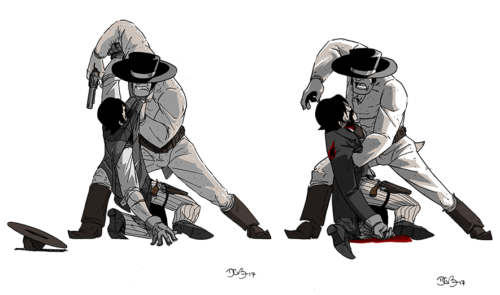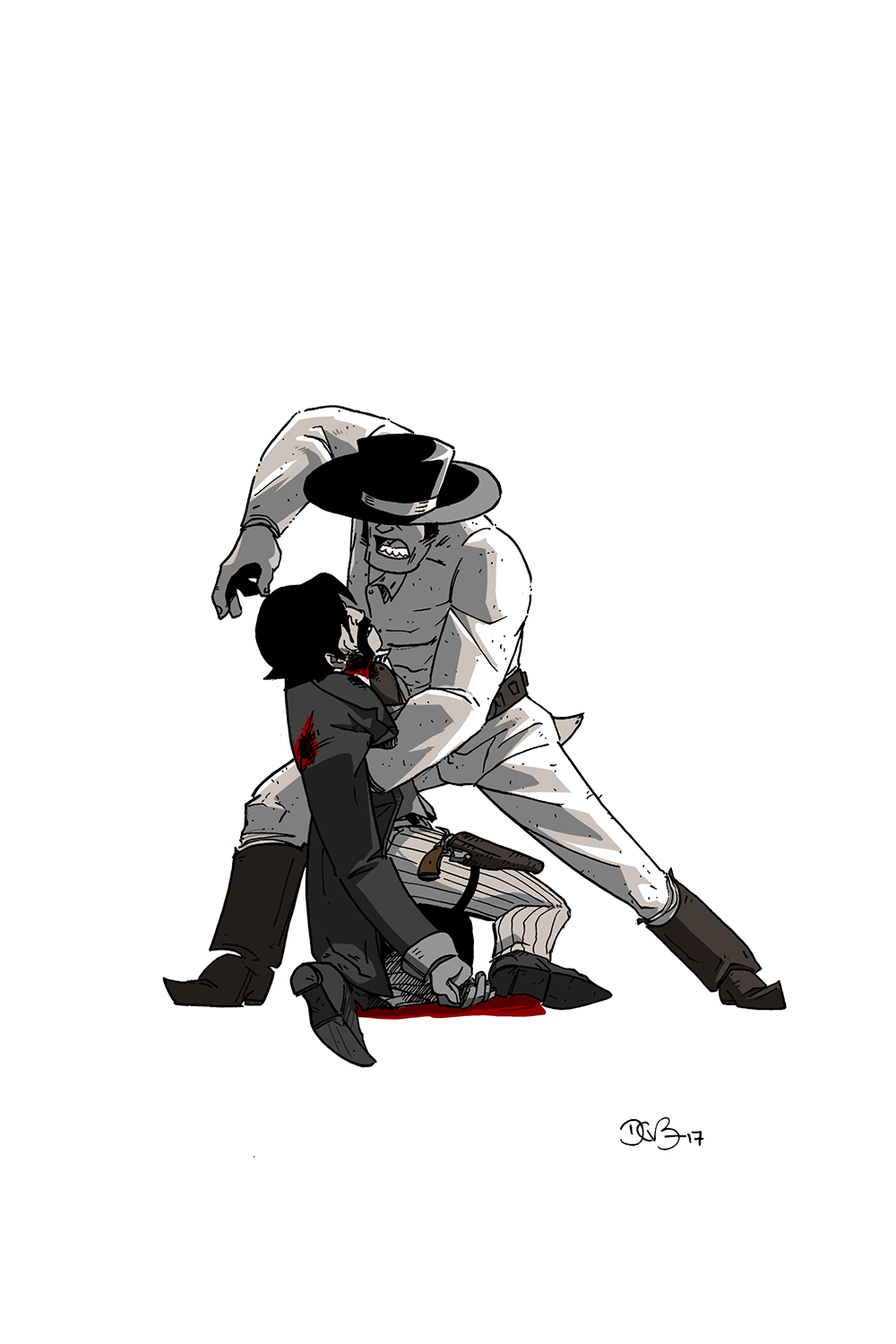Reprise
There’s no way to know how much impact a choice you make as a creator will have on a reader, made more profound when it’s a choice you want to have an impact on the reader. There’s only so much you can control, and once the work leaves your hands you have no say in how it will be received.
Part of the resistance I had to killing off Juan John came from him being a new character, one the reader only just met two pages from the end of Chapter 2, and he doesn’t even make it all of the way through Chapter 3.
Could the few scenes Juan John has in Chapter 3 be enough to make his death a surprise? To make the reader gasp in shock?
Again, I don’t know––I can’t force the reader to think, feel, or react a certain way. The best I can do as a creator is to let them know that this moment, at least, carries huge weight for Long John. That task is much easier to accomplish.

The completed diptych of the Long John/Juan John pietà.
I had the image in my head of the first page of this chapter for awhile and, once I realized Juan John was going to die, the opening splash immediately came to mind as an image to return to, but with some key differences.
When writing about the opening splash page, I noted that “I did want to create an iconic emotional moment that will hit the reader hard…to be not only structurally sound, but as expressive as possible.” Juan John’s death is, indeed another emotional moment for the story and Long John himself. To impress that importance on the reader, the reaction becomes amplified if I not only took the same philosophy that I used to draw that opening splash, but the splash itself.
This chiastic refrain adds a layer of melodrama simply because it looks like the opening page: the same characters, the same pose, different situations. Repetition almost forces people to focus––driving us to find connections. That’s why we remember the choruses of songs more often than the verses––they’re the part that is repeated. As with some songs, the chorus can take on a new meaning when what leads into it alters the context, charging the song with a different emotion. Sometimes, even, a single word can be changed in a chorus that drastically alters the tone, giving it that much more weight in the minds and memories of the listener.
So, even if a reader sees Juan John get shot through the neck and die in Long John’s arms and says, “Meh, I barely knew him,” I’m fairly confident that they’ll at least know that it’s an important, liminal moment for Long John, the character they do know.



Discussion ¬